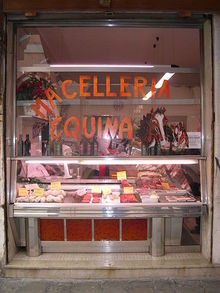According to a Habitat for Horses news source, French police have conducted searches across the nation’s south as part of an investigation into trafficking of horse meat unfit for human consumption that was entering the food chain.

A French butcher shop
According to a Habitat for Horses news source, French police have conducted searches across the nation’s south as part of an investigation into trafficking of horse meat unfit for human consumption that was entering the food chain.
© 201 by Tsaag Valern
The case involves fraudulent identity papers for horses. Twenty-one people were arrested in France as well as Spain for reselling horse meat from animals used in the pharmaceutical industry.
Sanofi (SAN), France’s largest drugmaker, said its vaccines unit is a victim of the fraud, and is assisting authorities in the investigation. The company uses live horses when producing serums such as anti-tetanus shots. Horse meat is eaten in parts of France, Belgium, Luxembourg and Italy, according to the website of Humane Society International.
“There are horses that should not end up in your plate nor at the butcher, and that is the topic of this investigation,” Consumer Affairs Minister Benoit Hamon said in an interview with broadcaster RTL.
The horses used to produce serums on average stay at the drug maker’s premises for three years, after which they’re sold “in good health” to equestrian centers, veterinary schools and professionals, Sanofi Pasteur, the drugmaker’s vaccines unit, said in an e-mailed statement.
“Though they represent no danger, Sanofi Pasteur always informs buyers that these horses must not be used in the food industry,” the company wrote. “Sanofi Pasteur will exercise its right to pursue in court any buyer who did not abide by this obligation, of which they were informed at the time of purchase.”
